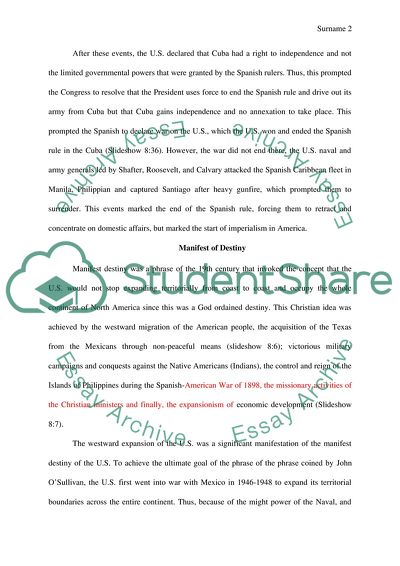Cite this document
(American Imperialism Report Example | Topics and Well Written Essays - 2750 words, n.d.)
American Imperialism Report Example | Topics and Well Written Essays - 2750 words. https://studentshare.org/politics/1872969-imperialism
American Imperialism Report Example | Topics and Well Written Essays - 2750 words. https://studentshare.org/politics/1872969-imperialism
(American Imperialism Report Example | Topics and Well Written Essays - 2750 Words)
American Imperialism Report Example | Topics and Well Written Essays - 2750 Words. https://studentshare.org/politics/1872969-imperialism.
American Imperialism Report Example | Topics and Well Written Essays - 2750 Words. https://studentshare.org/politics/1872969-imperialism.
“American Imperialism Report Example | Topics and Well Written Essays - 2750 Words”. https://studentshare.org/politics/1872969-imperialism.


